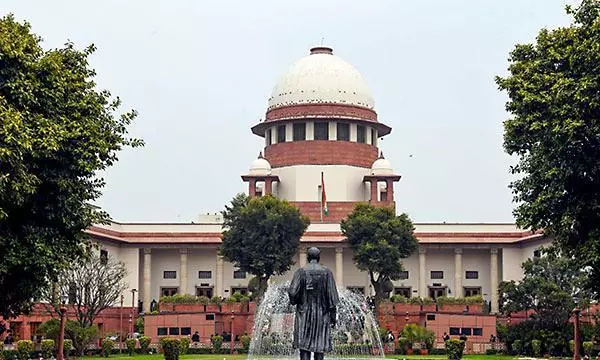
Waqf Act case hearing: Supreme Court reserves interim orders on 3 key issues
Centre defends Waqf Amendment Act, asserting that waqf by nature was a secular concept; petitioners challenging the Act call it a means to capture waqf properties

The Supreme Court on Thursday (May 22) reserved its interim orders on three issues, including the power to denotify properties declared as “waqf by courts, waqf-by-user or waqf by deed", after hearing a clutch of pleas challenging the validity of the Waqf (Amendment) Act, 2025.
On the third consecutive day of the hearing, the Supreme Court bench comprising Chief Justice BR Gavai and Justice Augustine George Masih heard senior advocates Kapil Sibal, Rajeev Dhavan, and Abhishek Manu Singhvi on behalf of those opposing the legislation and Solicitor General Tushar Mehta, representing the Centre.
Centre vs petitioners
The Centre strongly defended the Act, saying waqf by its very nature is a “secular concept” and can't be stayed given the “presumption of constitutionality” in its favour.
Sibal, leading the petitioners, described the law as a "complete departure from historical legal and constitutional principles" and a means to "capture waqf through a non-judicial process".
"This is a case about the systematic capture of waqf properties. The government cannot dictate what issues can be raised," Sibal said.
3 key issues
The petitioners at the present stage sought interim orders on three key issues.
One of the issues related to the power to denotify properties declared as waqf by courts, waqf-by-user, or waqf by deed.
The second issue was over the composition of state waqf boards and the Central Waqf Council, where they contend only Muslims should operate except ex-officio members whereas the last one is over the provision stipulating a waqf property won't be treated as a waqf when the collector conducts an inquiry to ascertain if the property is government land.
Contentious amendment
On April 25, the Union Ministry of Minority Affairs filed a preliminary 1,332-page affidavit defending the amended Waqf Act of 2025 and opposed any "blanket stay" by the court on a "law having presumption of constitutionality passed by Parliament".
The Centre notified the Waqf (Amendment) Act, 2025 last month after it got President Droupadi Murmu's assent on April 5.
The bill was cleared by Lok Sabha with the support of 288 members while 232 MPs were against it. The Rajya Sabha saw 128 members voting in its favour and 95 against it.
Also read
Follow this space for more live updates
Live Updates
- 22 May 2025 1:45 PM IST
Creating waqf different from donating to waqf: SG
Creating a waqf is different from donating to a waqf. This is why a five-year practice requirement (has been put in place by amendment) for Muslims... so that waqf is not used for defrauding someone. So, suppose I am a Hindu and I want to donate to a waqf, then donation can be made to a waqf: SG
- 22 May 2025 1:43 PM IST
SG says tribal Muslim lands cannot be dedicated as waqf
Please see my note on Scheduled Tribe aspect. This classification is made by the constitution itself. ST in scheduled areas is constitutionally protected. These are constitutional protections for valid reasons: Solicitor General Tushar Mehta
- 22 May 2025 1:35 PM IST
I adopt all submissions of the Solicitor General, but on legal plain, our Constitution adopts federal principle that one law of a state cannot be compared to another law, but here Parliamentary law is being compared to states' endowments acts: Rajeev Dwivedi
- 22 May 2025 1:34 PM IST
Waqf by user is not the core practice of Islam. Three judgments referred in Ram Janbhoomi judgment that waqf by user was not introduced as an Islamic principle: Senior advocate Rajeev Dwivedi, representative for the state of Rajasthan

